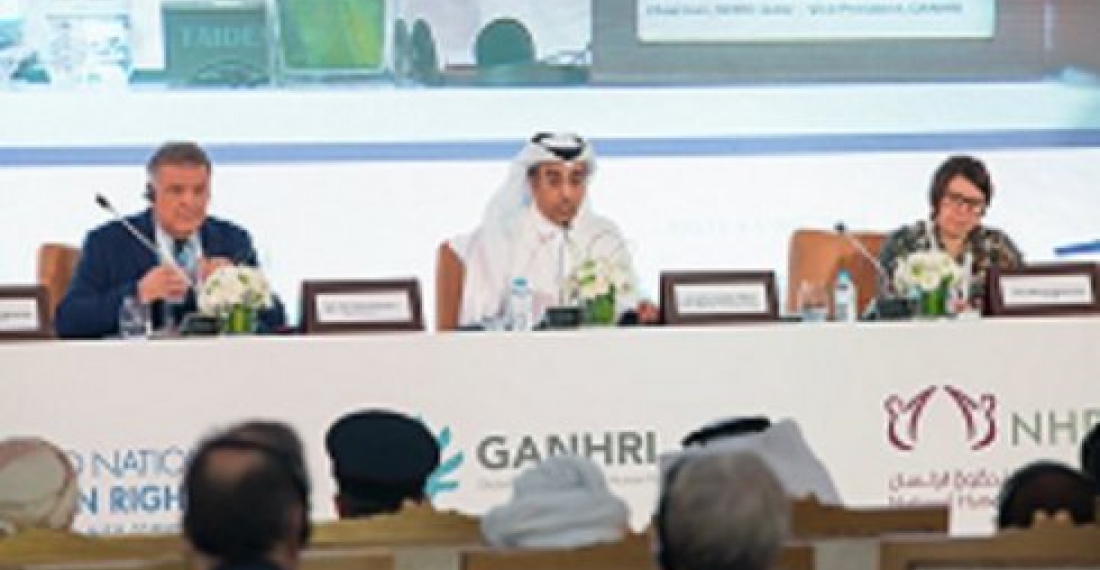At a landmark international event in Doha, the Chairman of the European Parliament's Sub Committee on Human Rights makes a passionate plea for a renewed sense of vigour and unity to guide the fight against impunity.
The conference "National, Regional and international mechanisms to combat impunity and ensure accountability under international law" opened in Doha on Sunday (14 April) with the participation of more than two hundred legal experts, practitioners, NGO activists and representatives of think tanks from all over the world. The Conference is organised by the Qatari National Human Rights Committee, the European Parliament, the Office of the UN High Commissioner for Human Rights, and the Global Alliance of National Human Rights Institutions.
Speaking at the opening session of the conference, Pier Antonio Panzeri, Chairman of the European Parliament's Sub Committee on Human Rights said that if the world is to continue tackling the problem of impunity for serious human rights violations it is not only essential to strongly support mechanisms designed to ensure accountability, but also to use the moment as an occasion to take stock of, and promote, the positive contributions that accountability can deliver on a societal level.
"Accountability is the soil in which peace can take root. We would do well to remember that the European Union itself is above all a peace project on an international scale, founded on core values of rule of law, democracy and human rights", Panzeri said. The speaker added that "Accountability can sow the seeds for reconciliation". He hailed the example of the truth and reconciliation Commission in South Africa. That experience "has also thought us key lessons about how societal, cultural and religious peculiarities of any one society will have impacts on the ways in which accountability is achieved. In the same spirit of compromise we must avoid a one size fits all model, whilst recognising the benefits of learning from examples where accountability has, if only partially, contributed to reconciliation", Panzeri added.
Panzeri hailed the work of the International Criminal Court, and of ad hoc International tribunals. "The greatest contribution of international justice in promoting rule of law has been to create awareness of international crimes that are a stain on the conscience of humanity, and by such lead increasingly to their prevention". Panzeri concluded by calling "for a renewed sense of vigour and unity to guide the fight against impunity in these worrying times for humanity".
The conference also heard a video message from the UN High Commissioner for Human Rights, Michelle Bachelet, who said that "societies that undergo conflicts or face authoritarian regimes must have their grievances addressed".
The conference was opened by the President of the Qatari National Human Rights Committee, Dr Ali Bin Samikh al Marri who said that it reflected the firm commitment of the Qatari Government to establish a human rights system that ensures redress for victims wherever they may be.
Among those attending the conference on Sunday was the prime minister of Qatar, Sheikh Abdulla bin Nasser bin Khalifa al Thani.

source: commonsapce.eu
photo 1: Dr Ali Bin Samikh al Marri and Mr Pier Antonio Ja Panzeri MEP
photo 2: Opening of the conference "National, Regional and international mechanisms to combat impunity and ensure accountability under international law" in Doha on Sunday (14 April) (picture courtesy of Al Sharq newspaper, Doha).







